Trans Allegories in Film: 'Your Name' (2016)
Our protagonists perform as the opposite gender while still preserving the parts of their personalities that makes themselves who they are.
Incluvie Foundation Gala - Learn More
Who we are is a mystery that often an entire lifetime isn’t enough to solve, let alone why we are the way we are. And sometimes, it’s during that never-ending quest that a piece of the puzzle comes along that was never there, but seems to fit. Not all connections can be articulated, but some transcendental attributes stay hidden under the intimidating cover of the unknown confusion in those once-in-a-lifetime chance encounters. Eternal yet ephemeral, it’s inexplicable, how the very thing that’s seemingly threatening to rob all stability, also offers the liberty which the caged heart always beats for, without essentially spelling it out, lest the constant heartbreak in a mundane existence simply stops it from running altogether. Principles clash, perspectives collide, and philosophies contradict as the war between the immediately familiar and the spiritually familiar rages on. Lines are crossed and new ones are drawn, and while the world sleeps, the soul wakes up. It’s got to run to the flame of freedom.
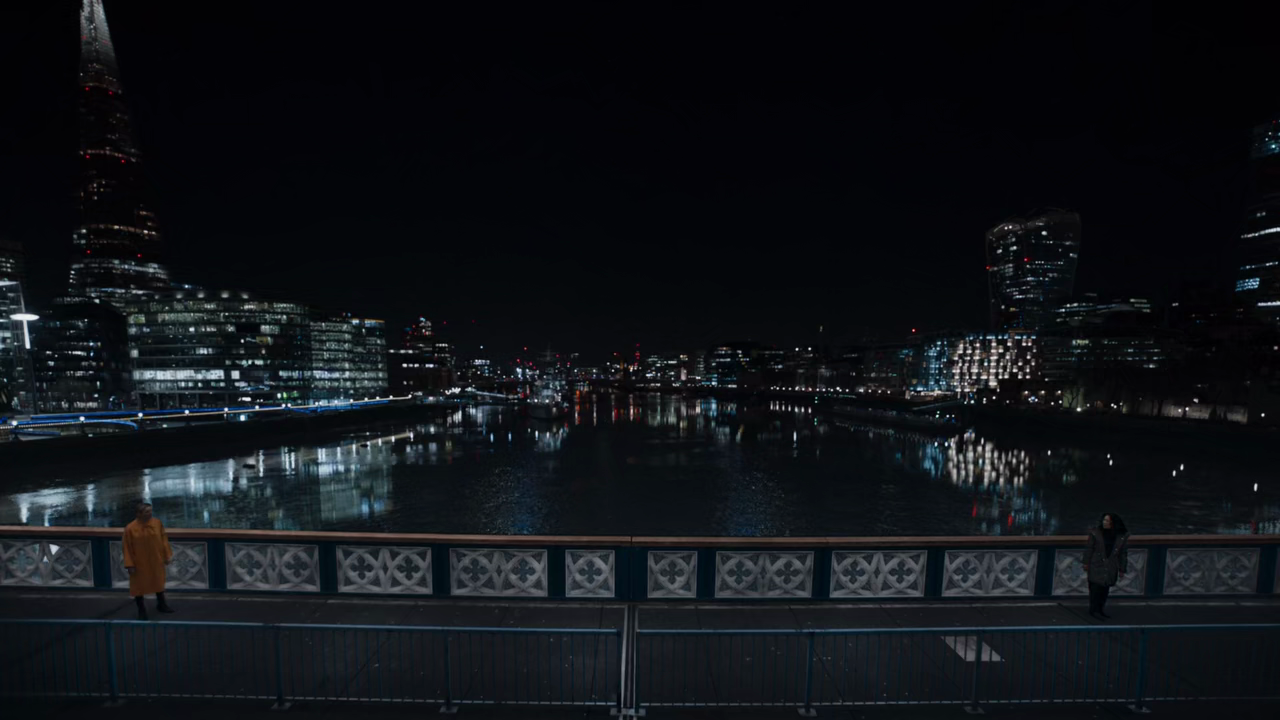
After I tried articulating them, turns out those were my thoughts on seeing Villanelle (Jodie Comer) and Eve (Sandra Oh) turn back to each other after walking away from the middle of the bridge in the season finale of Killing Eve Season 3. In that moment, I felt an ominous yearning, a touch of sadness but mostly a sense of fulfillment, accompanied by an unquenchable thirst for their bond to turn more serious. The sexual tension is possibly more enjoyable unresolved, but let’s face it – the tumultuous kiss on the bus in the middle of a fight, was definitely satisfying, to say the least. I’m still trying to comprehend the psychological and moral implications of their fascination with each other, or why their almost written-in-the-stars depth of connection makes so much sense.

It was predictable in a way that Villanelle and Eve’s relationship would cross barriers but the acknowledgment has come in forms of fleeting moments, always ending in disappointment for those sitting in anticipation for the moment when all conventions are thrown away and the undeniable connection between a psychopathic assassin and the secret agent on the mission to bring her to justice is finally confessed. Unlike Season 2 ending with Eve getting shot, the ending of season 3 practically does commit to the baffling attraction, but the subtlety in the longing looks makes it more a soft, emotional moment than the explosive scene one may come to expect for what should be a momentous scene.

The Biblical element is introduced early in the second scene when Villanelle leaves an apple as a clue for Eve. However, the spiritual connection of the two women keeps the element in subtext throughout. The ‘forbidden’ nature of a same-sex relationship in the Catholic view, juxtaposes well on the forbidden nature of their bond as criminal and cop. The power dynamics themselves are reflective of Biblical references because Villanelle is the one who strays more. The woman named Eve leads her astray. Villanelle literally agrees to assist the team hunting her and even becomes a team member as a law-abiding agent for a couple of episodes, and she is also not able to shoot Frank or Eve when Eve shows up. So the biblical fable of Eve leading Adam to sinful temptations is ever-present in their dynamic. Villanelle also goes out of her way to gift Eve clothes and is quite immediately less lethal when Eve’s present.
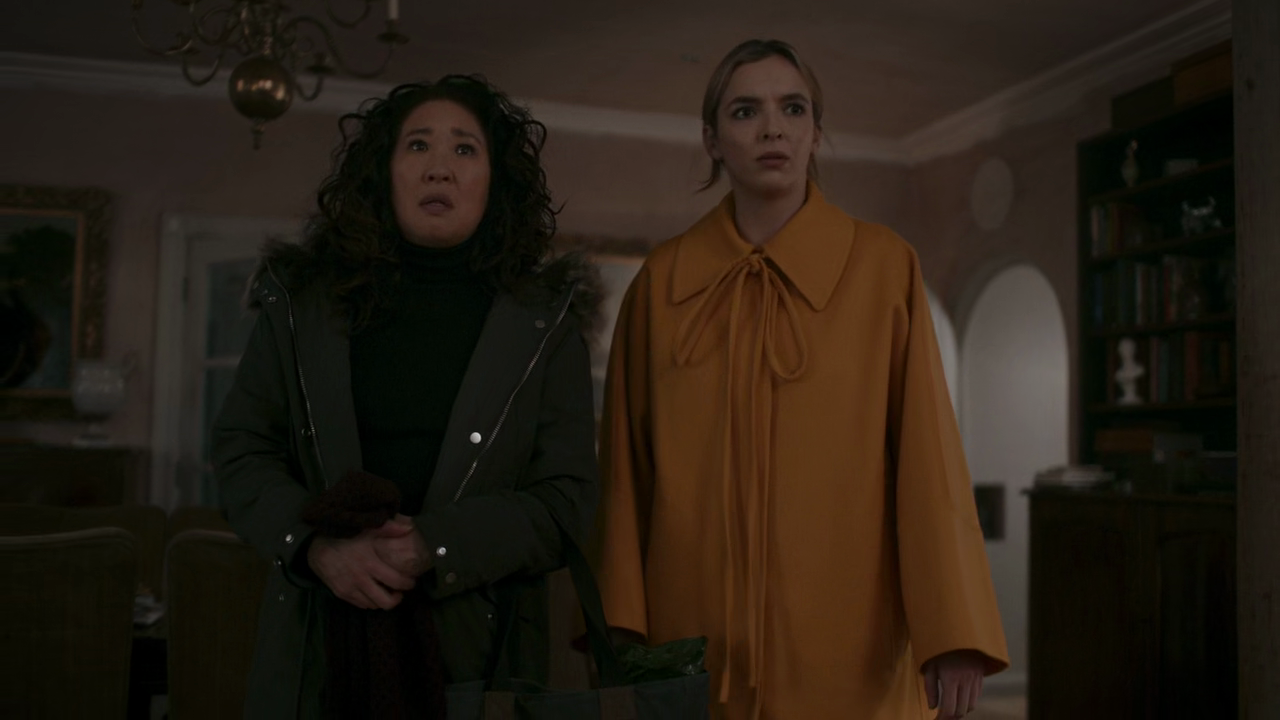
Another way of reading their dynamic is interpreting Villanelle as Lilith. It’s definitely a bit of a stretch, but Eve got fired from a majorly male-dominated department, by a man, after over-stepping boundaries, some of which could be gender biased. It’s clear she can hold her own, but she’s not given her due in a patriarchal world until another woman in power comes to her with an offer. It can be said this is like her deriving power, instead of yielding it, just like Eve was derived from Adam instead of being naturally equal. Lilith, on the other hand, was made equal and refused to bend, just like Villanelle commands the man who is in charge of her, and is totally in control in any situation. She doesn’t wait for someone to make her important. Further, Lilith was banished, and is considered a villainous figure, which is exactly how the world would perceive Villanelle given that she’s an assassin. To Eve, Villanelle represents ultimate freedom, the liberated fierce woman she maybe feels she could be too if she wasn’t deriving her power from superiors. That’s possibly why she approaches Eve independently outside her professional capacity on the bridge.
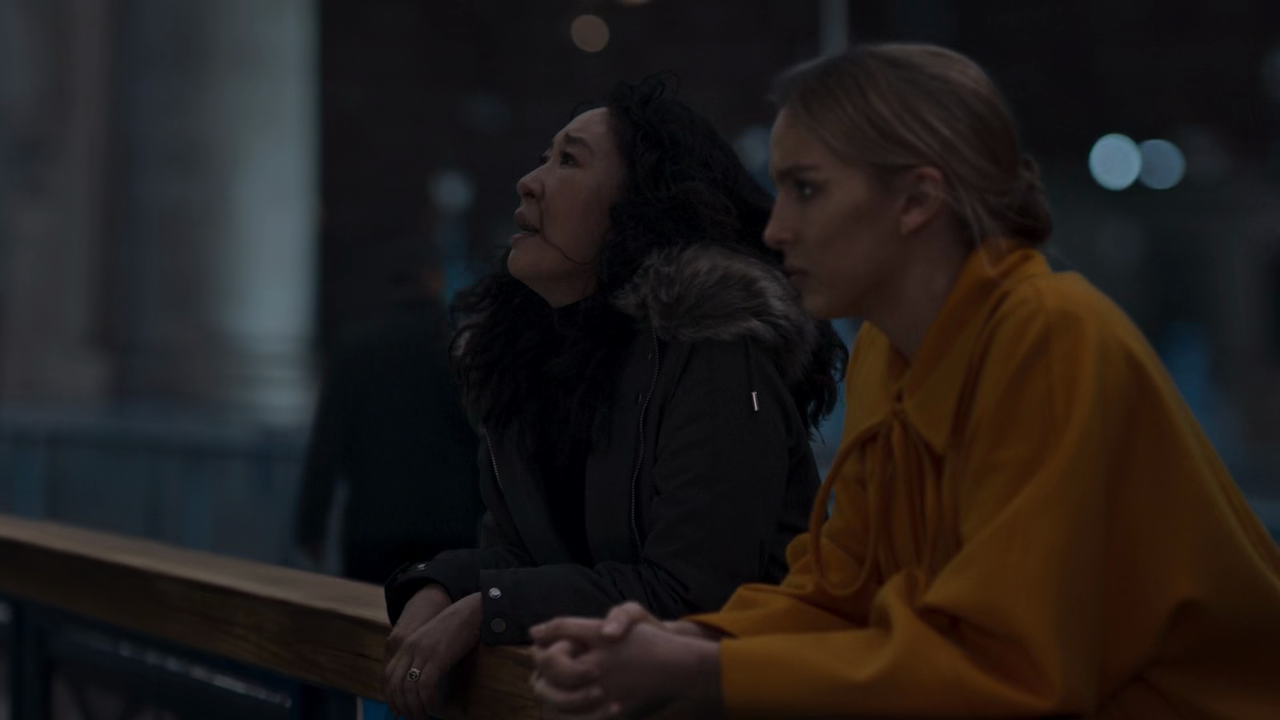
And then there are the moral implications of such a taboo relationship. To Villanelle, Eve represents the order she misses in her life. Maybe it was unknown to her, but that nagging interest in watching a film with Konstantin, was a form of craving for some stability in a life of constantly traveling to murder high-profile targets. On the other hand, Eve has had an ordered life, of following orders, and very obviously craves independence, as seen in her passionate investigation conducted completely outside her work, for instance. It’s the procedure that most people celebrate, and say is the reason for the efficiency of military intelligence, but it’s the lack of adherence to ‘unnecessary’ rules and regulations that Eve wants because she’s tired of restrictions on how head-on she can approach a mission. In fact, it’s the very same procedural approach that seems to make her team inefficient with respect to Villanelle’s incremental pace of escaping capture despite the even quicker escalation of her activities.

Eve breaking protocol so many times in pursuit of a faint feeling that there’s a genuine mutual bond between the two least likely people is blasphemous. However, it seems less so when one takes into account the modus operandi of her boss Carolyn (Fiona Shaw). Carolyn is never shown to answer to anyone until the final season, and her activities always border on the questionably bold. She was even bolder than Eve for that matter, with Villanelle, by offering her a job of all things! Maybe it’s because Eve is enamored with a career criminal who is so obviously a ‘bad’ person, that her bending rules seems to stand out, but Carolyn is very slack with procedure herself when it benefits her. Eve’s fascination with Villanelle could also arise from a wish to emulate her boss, and operate freely without the supervision of a woman who forces others to adhere to principles she herself seems to have no problem violating.
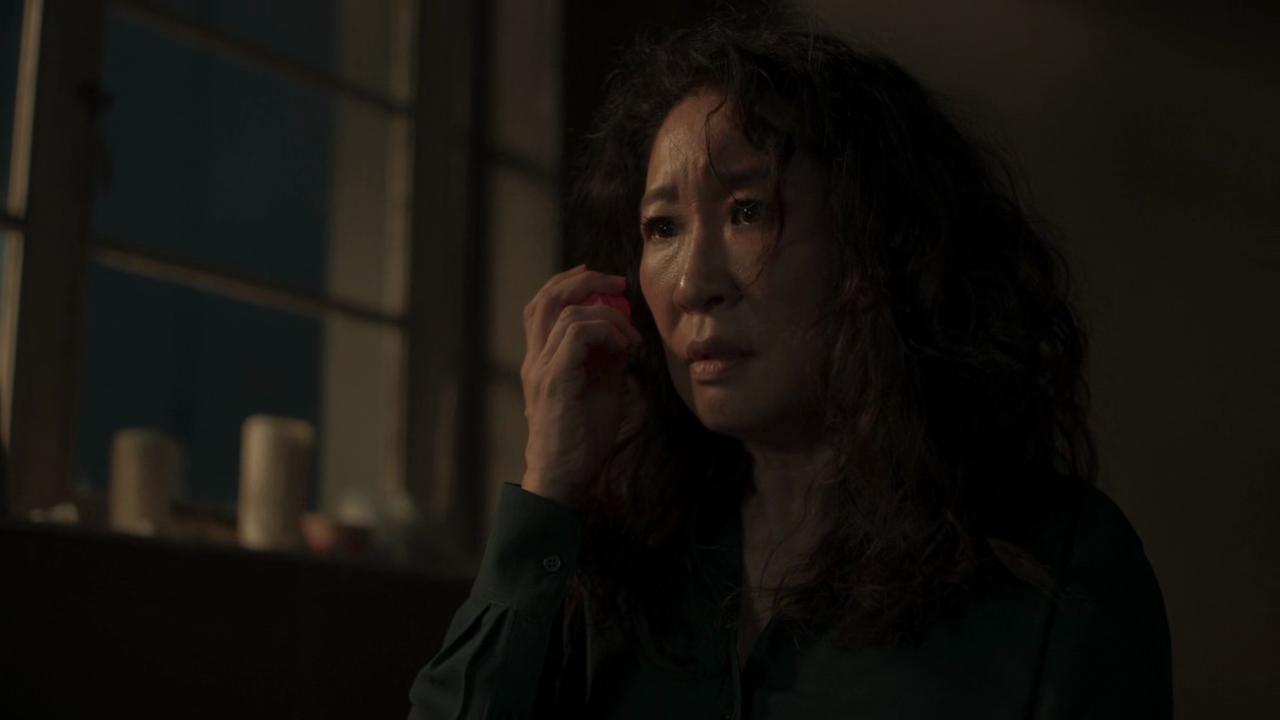
One of my favourite scenes from Season 3 was Eve getting terrified after finding the voice box inside the toy which Villanelle left with recordings in her voice, but then finding some sort of solace in listening to it, instead of breaking it. It paralleled a scene from Season 2 when Eve has sex while listening to Villanelle in her ears. Why the one from Season 3 stands out is because it tells us the obsession is limitless, and even after having her life derailed by Villanelle’s involvement, Eve cannot see her as an antagonistic presence. This confirms the undeniable nature of their connection. It culminates in them dancing together, comfortable in each other’s presence. Them being together in the final episode to run away for the future, was a fun thing to see. Fans want to see them in a romantic relationship, but I’m unsure that’ll happen right away. Either way, I’m excited to see where this leads.
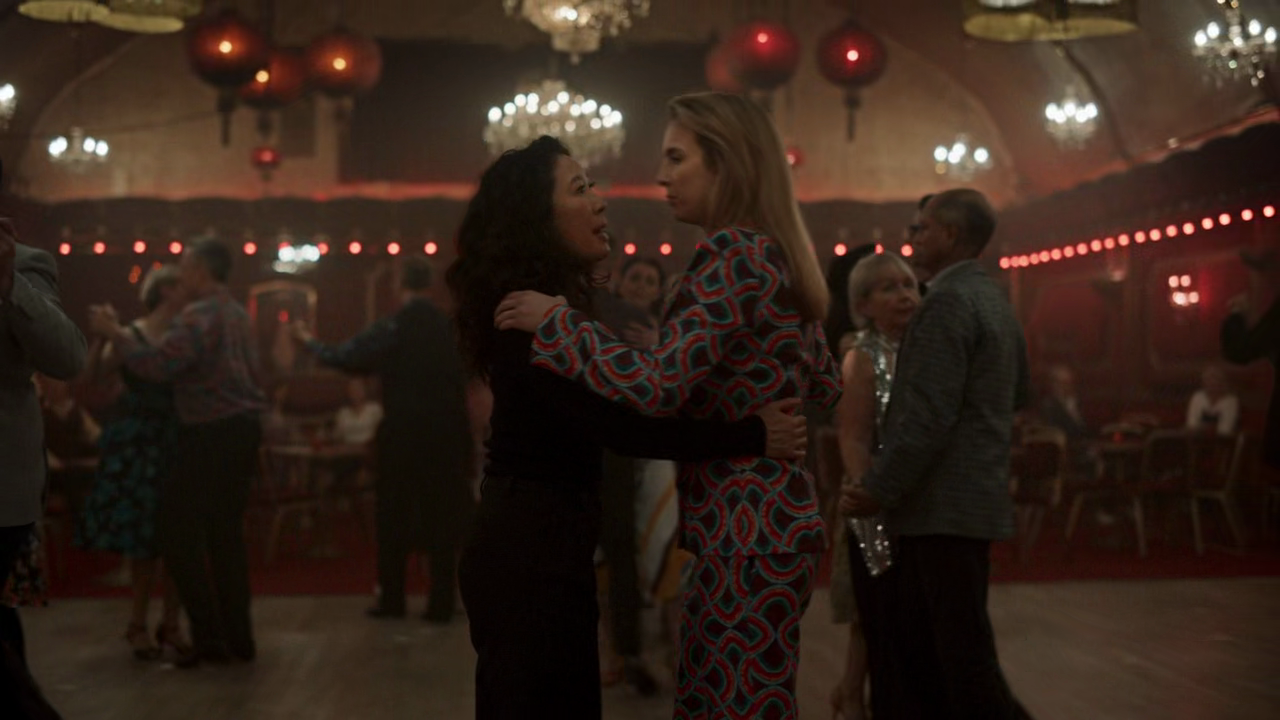
Related lists created by the same author
Our protagonists perform as the opposite gender while still preserving the parts of their personalities that makes themselves who they are.
Related diversity category
Check out the ABCs of Abbott Elementary - Cast & Reviews - In 'Abbott Elementary' showrunner and star Quinta Brunson highlights common issues among teachers deserving of Superhero Status.
Related movie/TV/List/Topic
The new Scooby Doo movie that will give viewers the frightening adventure of their lives.